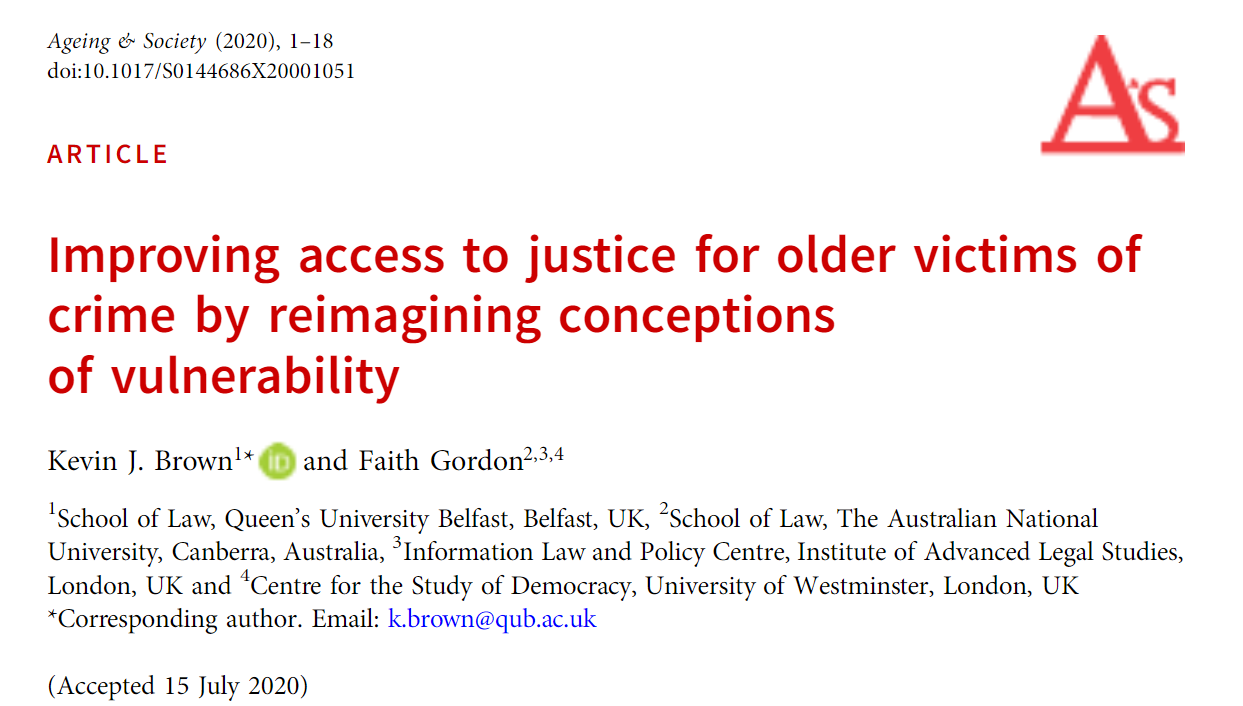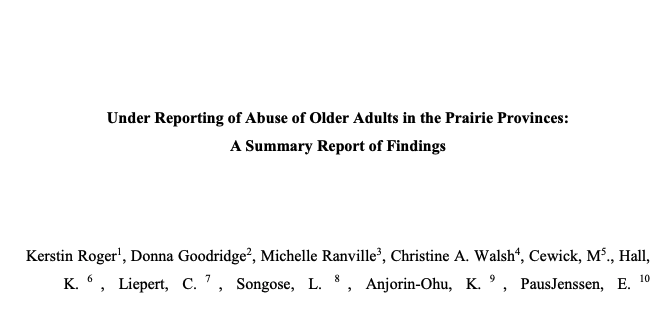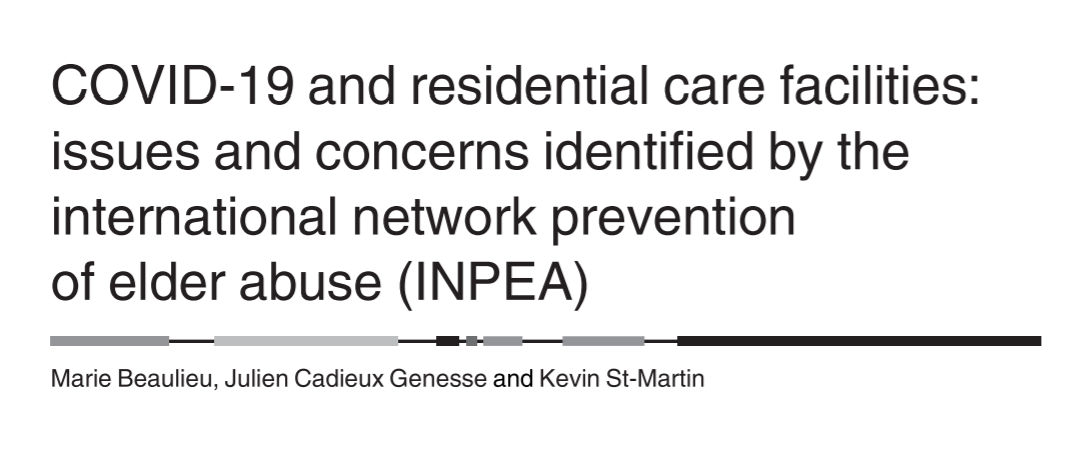Studies
Abstract: The Covid-19 pandemic has affected the physical, psychological, social and financial health of older persons. On this subject, the United Nations published a policy brief on the impact of Covid-19 on older persons in May 2020. In line with this, the purpose of this general review is to address three issues affecting older persons living in residential care facilities. Protective measures implemented to block the virus' entry, the type of mistreatment most frequently experienced and the necessity to promote and defend the rights of these persons.
Authors: Marie Beaulieu, Julien Cadieux Genesse and Kevin St-Martin
Published by Emerald Publishing Ltd. This article is published under the Creative Commons attribution (CC BY 4.0) license. Anyone may reproduce, distribute, translate and create derivative works of this article (for both commercial and non commercial purposes), subject to full attribution to the original publication and authors.
 Abstract
Abstract
This article investigates the implications of recent research findings that establish that older victims of crime are less likely to obtain procedural justice than other age groups. It explores original empirical data from the United Kingdom that finds evidence of a systemic failure amongst agencies to identify vulnerability in the older population and to put in place appropriate support mechanisms to allow older victims to participate fully in the justice system. The article discusses how the legally defined gateways to additional support, which are currently relied upon by many common law jurisdictions, disadvantage older victims and require reimagining. It argues that international protocols, especially the current European Union Directive on victims’ rights, are valuable guides in this process of re-conceptualisation. To reduce further the inequitable treatment of older victims, the article advocates for jurisdictions to introduce a presumption in favour of special assistance for older people participating in the justice system.
Source: Brown, K., & Gordon, F. (2020). Improving access to justice for older victims of crime by reimagining conceptions of vulnerability. Ageing and Society, 1-18. doi:10.1017/S0144686X20001051
 The objective of this tri-provincial (Alberta, Saskatchewan, Manitoba) research study funded by the PrairieAction Foundation was to explore the reasons for under-reporting in cases of abuse against older adults living in the community.
The objective of this tri-provincial (Alberta, Saskatchewan, Manitoba) research study funded by the PrairieAction Foundation was to explore the reasons for under-reporting in cases of abuse against older adults living in the community.
This summary report of findings follows a webinar which addressed the study, held in April 2020.
See also: Media Scan of Older Adults in Canada during COVID-19 Pandemic: Impacts on Abuse of Older Adults Living in the Community
Authors of the summary report:
Kerstin Roger, Donna Goodridge, Michelle Ranville, Christine A. Walsh, Cewick, M, Hall, K., Liepert, C., Songose, L., Anjorin-Ohu, K., PausJenssen, E.
Abstract
''Given that ‘home’ is the major physical‐spatial environment of many older adults and that home, social and neighbourhood environments are well‐recognised to impact both the ability to age in place and quality of life in this population, a better understanding of the nature of social interactions within seniors’ communal living environments is critical for health promotion. This paper describes a two‐phase participatory research study examining peer bullying by older adults conducted in April and May, 2016. Responding to needs expressed by tenants, the objectives of this study were to identify the nature, prevalence and consequences of peer bullying for tenants of two low‐income senior apartment communities. In collaboration with the local Older Adult Abuse Task Force, a screening survey on bullying was distributed to all tenants. Findings (n = 49) indicated that 39% of tenants had witnessed peer bullying and 29% had experienced bullying by peers. An adapted version of a youth bullying survey was administered in follow‐up face‐to‐face interviews with 13 tenants. The most common forms of peer bullying were deliberate social exclusion and hurtful comments. The majority of respondents indicated that bullying was a problem for seniors and that bullies hurt other people. Outcomes of bullying included feelings of dejection and difficulties conducting everyday activities.''
Donna Goodridge RN, PhD, Jennifer Heal‐Salahub RN, MN, Elliot PausJenssen MSW, George James BA Hons, MA, Joan Lidington BSN, BSW.
To access the full length paper, visit the Wiley Online Library
Abstract:
"This chapter reviews bullying and relational aggression among LGBT older adults. The intent of this chapter is to define and characterize late-life bullying in general and discuss unique manifestations of this phenomenon for LGBT elders. Special attention is given to peer victimization associated with intersectionality and microaggressions for this population, as well as common types of bullying and the impact bullying experiences have on emotional well-being and quality of life. Promising interventions to minimize bullying related to sexual orientation and gender identity in senior living environments are discussed and include civility training, bystander intervention, and policies and procedures that guide respectful social interactions and prohibit discriminatory actions."
Bonifas R.P. (2016) The Prevalence of Elder Bullying and Impact on LGBT Elders.
This chapter is part of the Handbook of LGBT Elders - An Interdisciplinary Approach to Principles, Practices, and Policies
Harley D., Teaster P. (eds) Handbook of LGBT Elders. Springer, Cham
Source: SpringerLink
Page 2 of 8


















